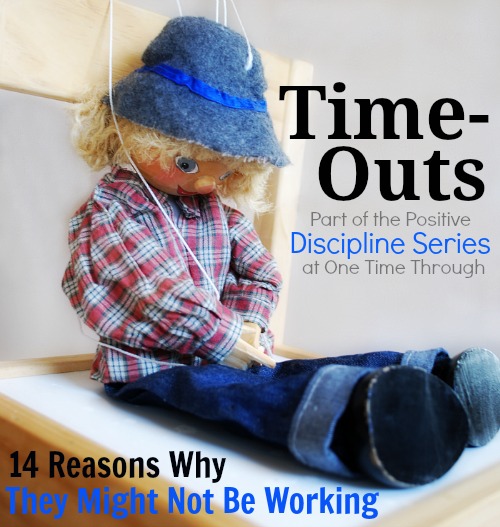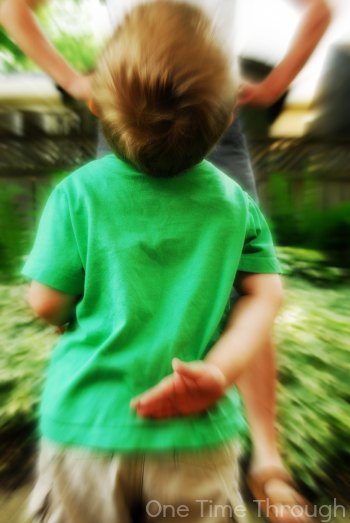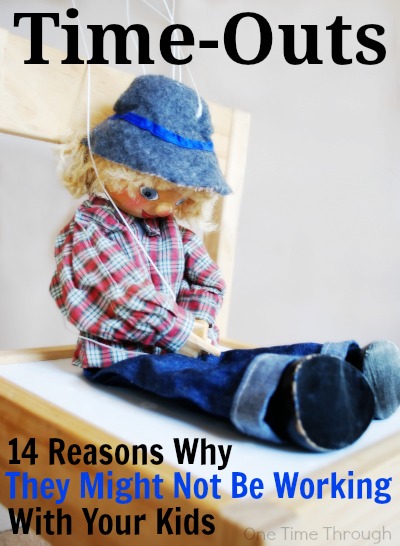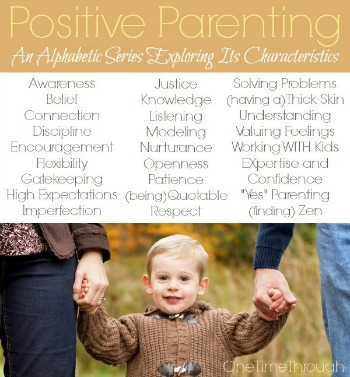Are you using Time-Outs with your children as a discipline strategy? Are you feeling frustrated that it doesn’t seem to be working? Are you using it over and over again for the same behaviours? Or maybe it’s just that it’s become a huge struggle to get your child to sit, or go, or stay in Time-Out? Are you maybe questioning whether it is a useful discipline tool?
I’ve been there. Trust me.
And I started to question whether there wasn’t a better way, a kinder way, a more effective way to help my child with difficult behaviours.
I’ve come to the conclusion that it all depends on your definition of “working.” Today I’m sharing 14 reasons why Time-Outs might not be working for you!
This post includes Amazon Affiliate links. For more details, see the Disclosure page.
As I said above, I’ve been there.
After working with kids for over 20 years as a therapist and educator in a variety of settings (you can read more about me here if you like), I’ve experienced the frustration of trying to find the most effective and kind way to get kids to behave positively, respectfully, and peacefully.
When I was trained to be a parent educator 20 years ago, Time-Out was promoted as being a kinder, more respectful version of punishment than spanking. It was believed to be an effective way to stop “misbehaviours” and the perfect tool for getting kids to reflect and think about their behaviours.
About 30 years ago, when a growing body of research started overwhelmingly showing that physical punishments are ineffective and harm children’s long-term social and emotional health, parents and schools started moving away from spanking and the strap.
Many parents turned instead to less physical punishments like time-outs and withdrawal of privileges.
However, over the past decade there has started to be research done showing that ALL forms of punishment (including time-outs) can have negative effects on kids.
After reading and reviewing much of this literature explaining why punishment is not only an ineffective tool for discipline, but may actually be causing harm, my mindset has completely changed.
I wanted to share today some of the things I have read that really surprised me at first, and then started to make more sense as I began my journey down the positive parenting road.
As I mentioned above – it all depends on what your definition of “working” is.
For me – a discipline strategy “works” when it helps to teach my child or student to behave more positively and socially, when it brings us closer to a better mutual understanding of each other, and when it has only positive short and long-term outcomes on emotional health and well-being.
Below you will find 14 reasons why time-outs might not really “work” according to my definition – condensed from many of my favourite positive parenting resources!
14 Reasons Why Time-Outs Might Not Really Work
1. Young children don’t always connect their “misbehaviours” to the punishment.
Developmentally, toddlers are not always capable of understanding that they have been put into Time-Out because of something they did or did not do (even if you explain it).
Their thinking is just not developed enough to understand cause and effect in that way yet. Even some preschoolers still struggle with making this connection. This is the reason why biting a child back when they bite you, or other similar punishments, are not effective.
Bottom Line? If the connection between behaviour and consequence is not being made, the time-out will certainly not be effective.
For a detailed and incredibly helpful review of children’s cognitive developmental milestones from birth to 19, be sure to check out Judy Arnall’s book, Discipline Without Distress.
2. Time-Outs disconnect you from your child and isolate them at a time when they need the most connection, guidance and support.
Many parenting authors/experts today believe that establishing and maintaining a deep connection with children is the most effective way of teaching and guiding their behaviour. (See Playful Parenting, Connection Parenting, The Whole-Brain Child: 12 Revolutionary Strategies to Nurture Your Child’s Developing Mind, Discipline Without Distress.)
When kids are timed-out, it negatively affects this connection, and actually makes it harder to teach kids how we would like them to behave.
Bottom Line? We need to focus on CONNECTING with our kids and finding ways to guide and support them – even when their behaviour challenges us.
“Closeness, playfulness, and emotional understanding are better bets than punishment, behavior modification, and too much permissiveness.” ~Lawrence J. Cohen
3. Time-Outs often make kids feel ashamed, angry, & resentful instead of remorseful.
The original idea behind Time-Out was that it was giving a child time to think about what they had done, and how they could behave better the next time.
Unfortunately, that’s not what tends to happen.
Kids in time-out often spend their time thinking about how they can get back at you, or at the very least how they can avoid getting caught the next time.
Very rarely are they sitting there feeling genuinely remorseful.
To know this is true, just think about any time when you were sent to your room, or the corner, or the principal’s office as a child. How did it make you feel?
Bottom Line? Time-Outs do not help our kids REFLECT on their choices.
4. Time-Out fails to teach kids HOW to behave.
This follows logically from the point above. If kids are not focused on reflecting on how they behaved, and how to change it, they are definitely not learning how to do things differently the next time.
Even if there’s a talk after a time-out about what to do the next time in the same situation, the adult-child connection and trust has been damaged and kids will not be as receptive to these lessons.
Bottom Line? We need other strategies and tools to TEACH our kids how to behave positively.
“We as parents must train our children and teens to manage anger appropriately. We can’t discipline it out of them.” ~ Gary Chapman, The 5 Love Languages of Children
5. Time-Outs may interfere with helping kids to develop good judgement.
When kids are really upset or angry or out of control, their brains are functioning in such a way that logical thinking is nearly impossible. (Read more about this concept in The Whole-Brain Child: 12 Revolutionary Strategies to Nurture Your Child’s Developing Mind by Dr. Dan Siegel).
So – if kids are sent away from adults when they are experiencing these types of emotions, they are not only NOT learning how to process and deal with those emotions, but they are not able to do the problem-solving thinking that helps develop good judgement over time. (See Lawrence J. Cohen’s book, Playful Parenting for more on this topic.)
Bottom Line? We must use other strategies to help kids learn to develop GOOD JUDGEMENT to monitor and make their OWN positive choices.
6. Time-Outs may teach kids some unintended negative lessons.
If they don’t teach kids how to behave, what do they teach? They may in fact be teaching some pretty harsh lessons.
At their worst, Time-Outs teach kids that parents are to be feared and that those with strength and power can control those without.
At their best, they may just be teaching kids that it’s better to not get caught next time, or even to be dishonest about what they’ve done (“I didn’t do it!”) next time in order to avoid punishment.
Bottom Line? It’s important to think about the UNINTENTIONAL messages that our discipline strategies convey to kids.
7. Time-Outs fail to address the underlying need or emotion behind a “misbehaviour.”
In a way, a time-out is like a bandaid. It covers up a cut and may stop the bleeding, but when you take it off, the cut is still there.
Kids “misbehave” for a variety of reasons. Sometimes it’s because they are feeling upset and/or angry and don’t know how to appropriately express those feelings.
Sometimes it’s because they have a need for connection, or even a physical need like food or sleep, that is not being met.
Bottom Line? Time-outs don’t help children understand or COMMUNICATE their emotions or needs any better.
8. Time-Outs don’t always work.
For some kids, time-outs are completely ineffective (think: strong-willed child).
Most often, these are the kids who are struggling the most with managing anger, intense feelings, and having difficulty expressing and communicating needs.
On the flipside, the kids who are instantly obedient and who go cooperatively to time-outs may be the ones who are learning a dangerous lesson: that they don’t have any control, or say, over their environment or what happens to them. This kind of lesson can definitely affect self-esteem over time.
Bottom Line? Time-outs may not be an effective discipline tool for strong-willed OR obedient children.
“Children cannot be punished into maturing faster, or scolded into somehow skipping a step of child development.” ~Lawrence Cohen in his book Playful Parenting
9. Time-Outs may contribute to future social-emotional issues.
In fact, research shows that the use of punishments and rewards can lead to our children being more aggressive and uncooperative.
Down the road, it can lead to them feeling like they have less control over their lives, and having more issues with self-esteem and confidence. (See Alfie Kohn’s book Unconditional Parenting: Moving from Rewards and Punishments to Love and Reason for more on this.)
Bottom Line? If we want our kids to be EMOTIONALLY HEALTHY as adults, we need to try to avoid using punishment as a discipline strategy.
10. Time-outs only work when you’re there.
So what happens when you’re not around? I don’t know that this needs much more explanation!
Bottom Line? If we want our kids to “behave” well – even when we’re not there – we need to teach them how to monitor and control their OWN behaviour.
11. Time-outs disempower kids.
It’s not easy to not want to control our kids. I still fight against the urge constantly. We want them to behave and we want them to behave NOW!
However – the more we try to control our kids, and impose our wishes and demands on them, the more they tend to struggle.
The more unempowered kids feel, the more angry and resentful and less cooperative they get.
No one wants to be controlled. No one. Not an infant. Not a toddler. Not a preschooler. And not you.
Time-outs are a controlling strategy. They are an attempt to change a child’s behaviour by applying an undesirable consequence.
Bottom Line? We need to find discipline tools that WORK WITH children, instead of tools that try to DO TO them.
“It takes courage not to punish.” ~Alfie Kohn, author of Beyond Discipline
12. Time-outs may communicate conditional love.
We can’t always control how our kids feel about us as parents. We may love them absolutely unconditionally, but they may not see things that way.
Kids come to believe that we truly love and accept them or don’t – from how we treat them.
Kids who are sent to time-out in anger, or who feel they are being punished unfairly or feel misunderstood, can come to see time-out as being a withdrawal of our love and acceptance.
When kids feel unloved, or even loved conditionally on “good behaviour” – it can set them up for a lifetime of depression, anxiety, and low self-esteem.
Bottom Line? We need to find discipline strategies that absolutely communicate UNCONDITIONAL love while also addressing our kids’ behaviour.
“Love is the foundation. Unconditional love is a full love that accepts and affirms a child for WHO he is, not for WHAT he does. No matter what he does (or does not do!) the parent still loves him.” ~Gary Chapman, author of The 5 Love Languages of Children
13. Time-outs can lead to power struggles and the use of more force and harsher consequences than necessary.
When I was a parent educator co-facilitator years ago, I heard numerous tales from parents who were using Time-Outs unsuccessfully.
Kids either were not willingly going to the time-out spot, or were constantly asking to come out, or parents were wrestling with the idea of locking their children’s doors to keep them in their rooms.
It seemed like craziness to me!
On top of how difficult they are to implement, time-outs can eventually lose their effectiveness as kids mature and learn that you really can’t make them do anything they don’t really want to do.
What can end up happening is an escalation of anger and struggle.
Eventually some parents just give up which sends a confusing message to the kids.
Some parents keep on struggling to “win” and unfortunately it can come at the cost of the child’s self-esteem and sense of control of their own life.
Bottom Line? NOBODY wins with power struggles.
 14. Time-outs may teach a negative lesson about anger.
14. Time-outs may teach a negative lesson about anger.
It may in fact be that time-out is more about the parent and the parent’s own ability to deal with anger and frustration, than the child’s behaviour.
Naomi Aldort’s book Raising Our Children, Raising Ourselves helped me see how so often the things that my son does that upset me, have a lot more to do with myself, my expectations and my coping strategies, than with him.
When we are upset or disappointed, or angry with our kids for their behaviour, it is so tempting to want to punish. It’s only human nature.
However – when we are punishing our kids out of anger, our kids are learning that that’s an acceptable way of dealing with this strong emotion.
I will never forget the time (and I hope my mother forgives me for sharing this) – when my mom sent me to my room when I was a child for some misbehaviour. Funny enough, I can’t remember what it was now! (As you can see, I certainly wasn’t reflecting on it!)
I do remember feeling extremely angry at her and as soon as I got a chance, I wrote a mean note to her that I snuck out of my room to tape onto the vacuum she was using. She had just gotten a new perm that morning and I think I wrote something about hating it and that she looked like Annie.
I don’t think I’d ever said or written anything that nasty before or since. And when I saw my mom was visibly upset later at dinnertime, I felt incredibly guilty and still do to this day.
My point is: I felt punished, and so I wanted to punish back. Yes – I know I felt guilty later, but in the moment, I felt justified. Again – sorry Mom!
Bottom Line? If we want our kids to learn how to appropriately express and deal with anger, instead of being shut away to suppress it, we MUST model its healthy expression WITH them.
“If we really look honestly, I think we’ll find that a lot of our discipline is just acting out our feelings!” ~Lawrence J. Cohen
In the end, it all comes back to YOUR definition of what makes a discipline strategy one that works.
In some ways, punishment does work. It can sometimes stop “misbehaviours.” But there are short-term and long-term consequences to its use as you can see.
As a parent and educator who is trying to always consider how I want my son and students to be in the future, I feel it’s important to parent in a way that reflects and moves towards those goals as much as possible.
For me and my family, punishments and time-outs have no place in those goals and I hope that maybe you will agree as well.
If you’re interested in this approach and want to learn more and read some of the supporting research, I would strongly recommend reading Alfie Kohn’s book, Unconditional Parenting: Moving from Rewards and Punishments to Love and Reason.
You can also find all of my favourite positive parenting books in our Book List, many of which address this topic.
And before you go, I realize that I’ve given you lots of reasons today to NOT use Time-Out, but not provided any alternatives.
I’m saving that topic for the next two weeks and hope that you’ll join us then for our next instalment of this 4-part Positive Discipline Mini-Series!
To find even more fun and educational activities as well as positive parenting tips, follow me on Facebook and Twitter.
Follow our Positive Parenting Pinterest board where all our posts will be added and where you will find all kinds of positive parenting resources from around the web!
Follow One Time Through’s board Positive Parenting (1-6 yrs) on Pinterest.
Thanks for joining me this week and hope to see you next Saturday! You can find all our series posts on the Positive Parenting Page.








Wow…very powerful! What you write makes a lot of sense and as a mom of four I can say that we used timeout and it never really worked and we can only change moving forward. I love your ability to write effectively and I certainly love your pictures you use to emphasis your words
Thanks so much Christine. That really means a lot. It’s a topic I’m passionate about and have avoided until now because it can be controversial. Everyone has strong opinions about this and rightfully so – we all want to feel like we’re doing the very best for our kids that we can. I know that I’ve personally learned so much since becoming a parent and just truly want to share what I’ve discovered with anyone else who might be feeling how I used to feel about using time-out – indecisive. It’s great to hear about your experiences – especially as you’ve got 4 kids! Thanks again for the compliments. Thanks for dropping by! Best,Sue
Thank you for the well-written article. I am a dad of two, and tried time-outs for short period — they didn’t really work. I was wondering whether or not I was doing something wrong. Your article brings a lot things into perspective. Thank you again!
Thanks so much Matthew. I’m glad you found it helpful. I used to wonder the same thing, and I know lots of parents have been there too. In a few weeks I’ll be writing about an alternative to time-out often referred to as “Time-In.” Hope you wander back our way to check it out. Thanks for dropping by and taking the time to comment – much appreciated! Sue